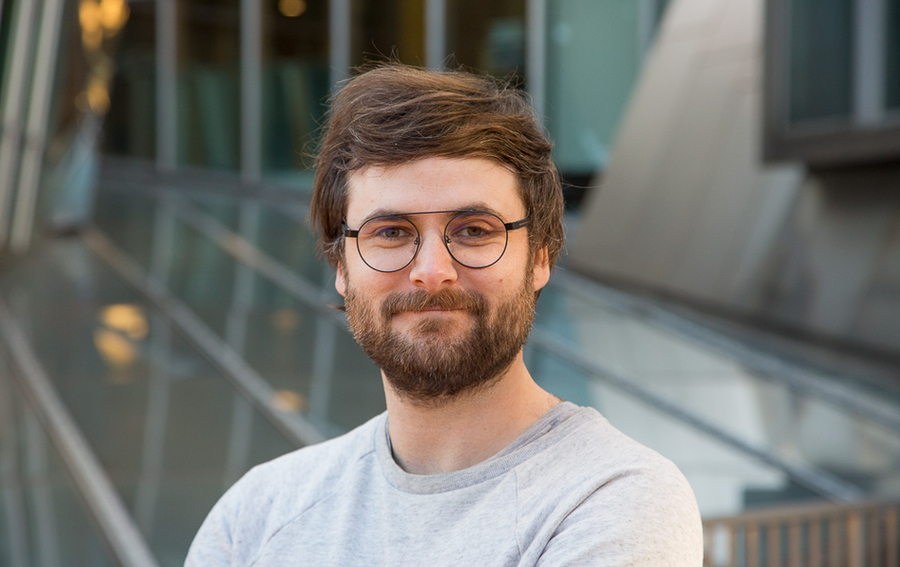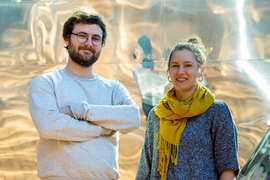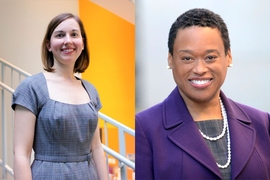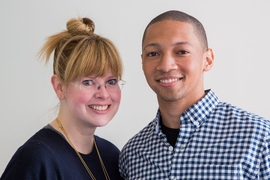Milo Phillips-Brown, a postdoc in MIT Philosophy, was recently named the inaugural recipient of the MAC3 Society and Ethics in Computing Research Award, which provides support to promising PhD candidates or postdocs conducting interdisciplinary research on the societal and ethical dimensions of computing.
Phillips-Brown, the Distinguished Postdoctoral Scholar in Ethics and Technology within the MIT Stephen A. Schwarzman College of Computing — a position that is supported, in part, by the MIT Quest for Intelligence — is being recognized for his work teaching responsible engineering practices to computer scientists. He teaches two courses, 24.131 (Ethics of Technology) and 24.133 (Experiential Ethics), and has been an active participant in the activities of the Social and Ethical Responsibilities of Computing (SERC), a new cross-cutting area in the MIT Stephen A. Schwarzman College of Computing that aims to actively weave social, ethical, and policy considerations into the teaching, research, and implementation of computing.
“We are delighted to be able to work so closely with Milo,” says Julie Shah, an associate professor in the Department of Aeronautics and Astronautics, who along with David Kaiser, the Germeshausen Professor of the History of Science and professor of physics, serves as associate dean of SERC. “Over this past spring semester, Milo was a great thought partner in the design of SERC-related materials, including original homework assignments and in-class demonstrations for instructors to embed into a wide variety of courses at MIT,” says Shah.
“We knew we had an exceptional colleague when we selected Milo as our inaugural postdoc. We look forward to collaborating with him and his continued contributions to SERC,” adds Kaiser.
In addition to active learning projects, Phillips-Brown has been working with Shah and Kaiser on preparing the first set of original case studies on social and ethical responsibilities of computing for release in the coming months. Commissioned and curated by SERC, each case study will be brief and appropriate for use in undergraduate instruction and will also be available to the public via MIT’s open access channels.
“I’m thrilled to be the inaugural recipient of the MAC3 Society and Ethics in Computing Research Award. This is a time when we need to be exploring all possible avenues for how to teach MIT students to build technologies ethically, and the award is enabling me to help just do that: work with professors and students across the Institute to develop new models for ethical engineering pedagogy,” says Phillips-Brown.
Phillips-Brown PhD ’19 received his doctorate in philosophy from MIT and his bachelor’s in philosophy from Reed College. He is a research fellow in digital ethics and governance at the Jain Family Institute and a member of the Society for Philosophy and Disability. From 2015 to 2018, he directed the Philosophy in an Inclusive Key (PIKSI) Boston, a summer program for undergraduates from underrepresented groups. In January 2021, he will begin an appointment at Oxford University as an associate professor of philosophy in the Faculty of Philosophy and the Department of Computer Science.
The MAC3 Society and Ethics in Computing Research Award was established through the MAC3 Impact Philanthropies which provides targeted support to organizations and initiatives that impact early childhood, health and education, as well as the environment and the oceans.










